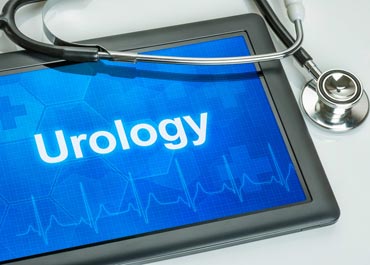 A recent report in Urology Times provides clear evidence of how urologists benefit from clinical documentation support. Electronic medical record (EMR) documentation is a burden for most physicians and many urologists are relying on scribes to help with the burden of EHR data entry. Recent market research reports indicate that medical transcription services are also slated to grow phenomenally, which provides further proof of the physicians’ growing inclination to rely on medical documentation specialists to maintain quality patient records and improve quality of care.
A recent report in Urology Times provides clear evidence of how urologists benefit from clinical documentation support. Electronic medical record (EMR) documentation is a burden for most physicians and many urologists are relying on scribes to help with the burden of EHR data entry. Recent market research reports indicate that medical transcription services are also slated to grow phenomenally, which provides further proof of the physicians’ growing inclination to rely on medical documentation specialists to maintain quality patient records and improve quality of care.
EMR documentation has led physicians to spend more time on data entry, negatively impacting the time they spend on interacting with their patients. Research has shown that EMR responsibilities are among the top reasons for physician burnout. Many urologists are now using scribes to ease that burden, focus on patient care, and improve productivity and efficiency.
Many studies have assessed the impact of hiring scribes in urology practices:
- A study published in the Journal of Urology in 2010 showed that support for medical documentation increases urologist satisfaction and improved patient satisfaction. Nearly 70% of urologists surveyed expressed satisfication with office hours when they had a scribe, compared to about 20% who did not have a scribe.
- Medical scribes reduce physicians’ computer charting burden and patient flow, according to a study published in Urology Practice in 2015. However, the authors pointed out that this model would be viable only if the additional revenue from increased patient visits is greater than the costs of hiring scribes.
- A review published in The Journal of the American Board of Family Medicine in 2015 on medical scribe use in medical practices including urology practices said that clinician satisfaction, productivity, time-related efficiencies, revenue, and patient-clinician interactions improved with such medical documentation support.
The Urology Times article describes urologists’ experiences with scribe support. One physician said hiring a scribe allowed him to really listen to a patient without having to touch the computer at all or worry about which box to click.
Another urologist said he was not a multitasker and that his typing would suffer if he had to face the computer screen much of the patient visit. In his practice, the scribe prepares EMR notes before the patient arrived, summarizes data from the previous note and copies results of previous studies and procedures for follow-up patients, records the patient’s history and physical findings during the office visit, and records the urologist’s treatment plan for the patient and the diagnosis.
Scribes increase the doctor’s efficiency 20% to 30%, according to one urologist. After a brief introductory interaction with the patient, the scribe comes in and takes their history and review of symptoms. The physician uses that time to see two to three additional patients. He then goes back in with the scribe to do the physical exam, and communicates his findings so that the scribe can do the documentation. As the scribe goes outside and documents the plan of care as directed, the physician discusses it with the patient.
The urologists also discussed the disadvantages of hiring scribes:
- They have to spend time and energy to train a scribe
- Scribes add one more person to the room, especially when the patient’s family members are also present
- Hiring a scribe may not be cost-effective for the practice
Outsourcing medical transcription can address these issues. Medical transcriptionists (MTs) remotely convert recordings of physician dictation and deliver the transcripts in custom turnaround time. They work with an interface that puts the transcripts into the EMR system. They document patient notes dictated as part of the patient encounter such as the History of Present Illness, Subjective, Objective, Review of Systems, Social History, Assessment, and Plan, and more. The data is put into the correct discrete reportable data fields to meet Meaningful use requirements.
Urology transcription service is also cost-effective. Medical transcription companies charge by line or volume, and physicians pay only for the transcripts they receive. This can be a more affordable option than hiring a scribe or in-house medical transcriptionist at an hourly rate or salary.
The medical transcriptionists, proofreaders and editors in a reliable medical transcription company are also knowledgeable about urological conditions, terminology, procedures and related drugs. This allows them to provide error-free transcripts for patient reports relating to diagnosis and treatment of all urological conditions.
Regardless of whether physician choose medical transcriptionists or scribes, it is clear that EMR documentation support can move physicians away from the data-entry task, reduce the burden of documentation, and improve the patient experience.


